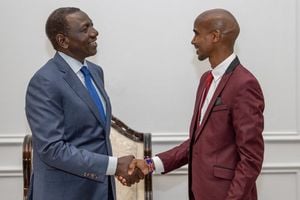IMF injects Sh 9.3b to shore up shilling
Kenya’s forex reserves have got a fresh boost after the International Monetary Fund approved a further Sh9.3 billion ($110.5 million) loan to Kenya.
The loan is part of the ongoing Extended Credit Facility (ECF) negotiated to shore up the shilling. The first disbursement of the three year credit facility - now in its fourth tranche - was made in January 2011.
The executive board of the international lender said on Thursday morning that the money will be disbursed immediately.
This now brings the total disbursement so far to Sh45billion under the program that will see Kenya receive Sh63billion ($750.6 million) in total.
“In completing the review, the Executive Board approved the request for a waiver for the non-observance of the performance criterion on the non-accumulation of external arrears for end-June 2012, and the modification of performance criteria for the next 12 months to fit the revised macroeconomic outlook,” the lender said in a statement.
The lender said its decision is guided by the rebounding economic activity in Kenya after slowing down in 2011/12, helped by improved macroeconomic stability, foreign investment in oil and natural gas exploitation, and favourable weather conditions.
“Inflation has declined substantially, net international reserves have increased, public debt is low, and pressures on the exchange rate have dissipated,” Mr Naoyuki Shinohara, Deputy Managing Director and Acting Chair of the IMF’s executive board said in the statement.
Though the executive board also noted that Kenya had made progress in reducing its economic vulnerabilities, it remained concerned that the downside risks still remain due to global uncertainties and spending pressures associated with the upcoming elections.
It cautioned Kenya to maintain policy discipline to build on the accomplishments so far.
“Fiscal policy has remained on track. Revenue shortfalls in fiscal year 2011/12, arising mainly from the elimination of the VAT withholding regime, were offset by cuts in non-priority current and capital outlays. To boost revenue, the authorities are taking measures to strengthen VAT administration. It will be important to resist spending pressures in the run-up to the forthcoming elections,” Mr Shinohara said.




